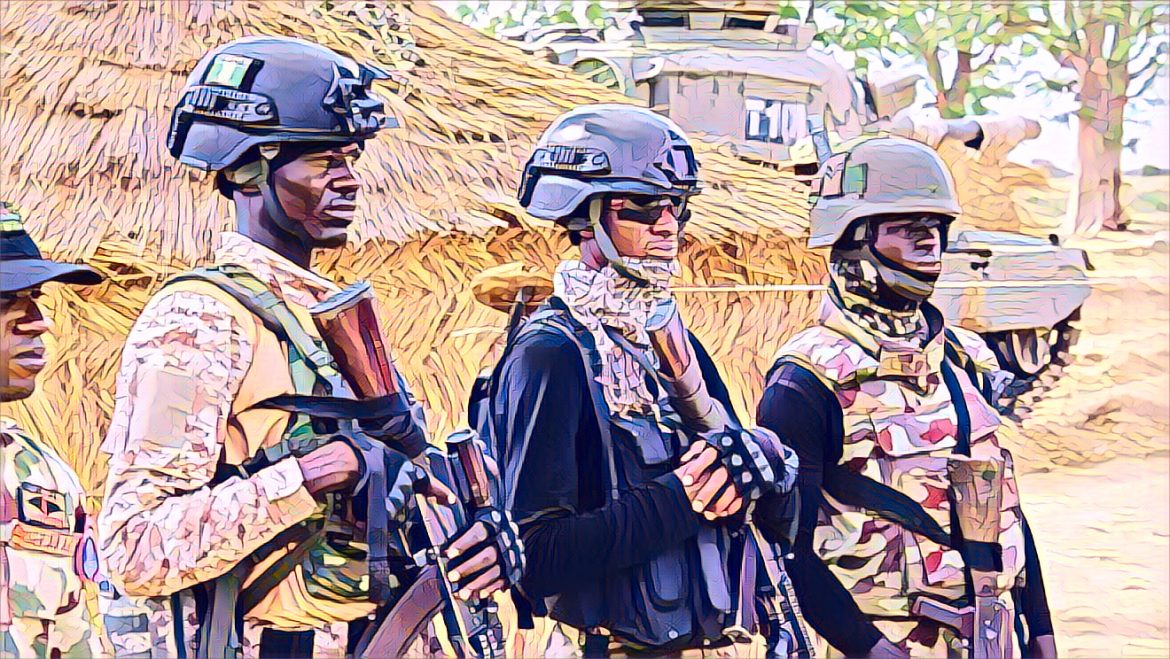In a violent clash between Nigerian soldiers and armed bandits in Plateau State, many people have been killed, escalating concerns over the region’s security situation. The incident occurred in the Mangu local government area, which has recently been plagued by increasing attacks from bandits targeting rural communities.
According to local sources, the confrontation began when soldiers on a routine patrol encountered a group of heavily armed bandits in the early hours of the morning. A firefight ensued, resulting in significant casualties on both sides. While the exact number of fatalities is still unclear, reports suggest that at least 15 soldiers and numerous bandits were killed in the exchange.
Residents of the affected area described the scene as chaotic and terrifying. “We heard gunshots throughout the night,” said one local villager who preferred to remain anonymous. “The fighting was intense, and many people had to flee their homes to escape the violence.”
The Nigerian military has yet to issue an official statement on the incident. However, a senior military official, speaking on condition of anonymity, confirmed that the clash resulted in casualties but declined to provide further details pending an official investigation.
This latest outbreak of violence highlights the ongoing security challenges in Plateau State, which has been a hotspot for conflict between various armed groups, including bandits and local militias. These groups often clash over control of land, resources, and political influence, leaving communities caught in the crossfire.
Human rights organizations have repeatedly called on the Nigerian government to take more decisive action to protect civilians in conflict-affected areas. They argue that a lack of effective law enforcement and security presence has allowed these groups to operate with impunity, exacerbating the violence and instability in the region.
“This incident is yet another tragic reminder of the urgent need for comprehensive security reform in Nigeria,” said Nkechi Obasi, a human rights activist based in Abuja. “The government must prioritize the safety of its citizens and ensure that the security forces are adequately equipped and trained to deal with these threats.”
In recent months, the Nigerian military has stepped up its operations in the region, deploying additional troops and launching several offensives against bandit camps. However, these efforts have so far failed to fully contain the violence, with bandits continuing to launch attacks on villages and ambush military convoys.
The situation in Plateau State is further complicated by the region’s complex ethnic and religious dynamics. Tensions between different communities have often boiled over into violent confrontations, adding another layer of difficulty for security forces trying to restore order.
Local leaders have called for calm and urged residents to cooperate with security forces in their efforts to restore peace. “We must work together to overcome this crisis,” said a community leader from Mangu. “Violence will only lead to more suffering for our people. We need to find a way to resolve our differences peacefully.”
The Nigerian government has also pledged to increase its efforts to address the root causes of the violence, including poverty, unemployment, and lack of education, which have contributed to the rise of banditry and other forms of criminality in the region.
However, many Nigerians remain skeptical about the government’s ability to effectively tackle these issues, given the scale of the problem and the persistent corruption and inefficiency that have plagued the country’s security apparatus for years.
As the investigation into the latest clash continues, there are calls for a more comprehensive approach to security in Plateau State and other affected areas. This includes not only military action but also dialogue and reconciliation efforts to address the underlying grievances that fuel the conflict.
For the residents of Mangu and other affected communities, the priority is clear: they want peace and stability so that they can rebuild their lives and live without fear. Whether the Nigerian government can deliver on this promise remains to be seen, but the hope for a brighter future persists among those who have endured so much.
Source: Business Day Nigeria


